Published Nov 30, 2016
The Examined Life is the Only One Worth Living
The Examined Life is the Only One Worth Living
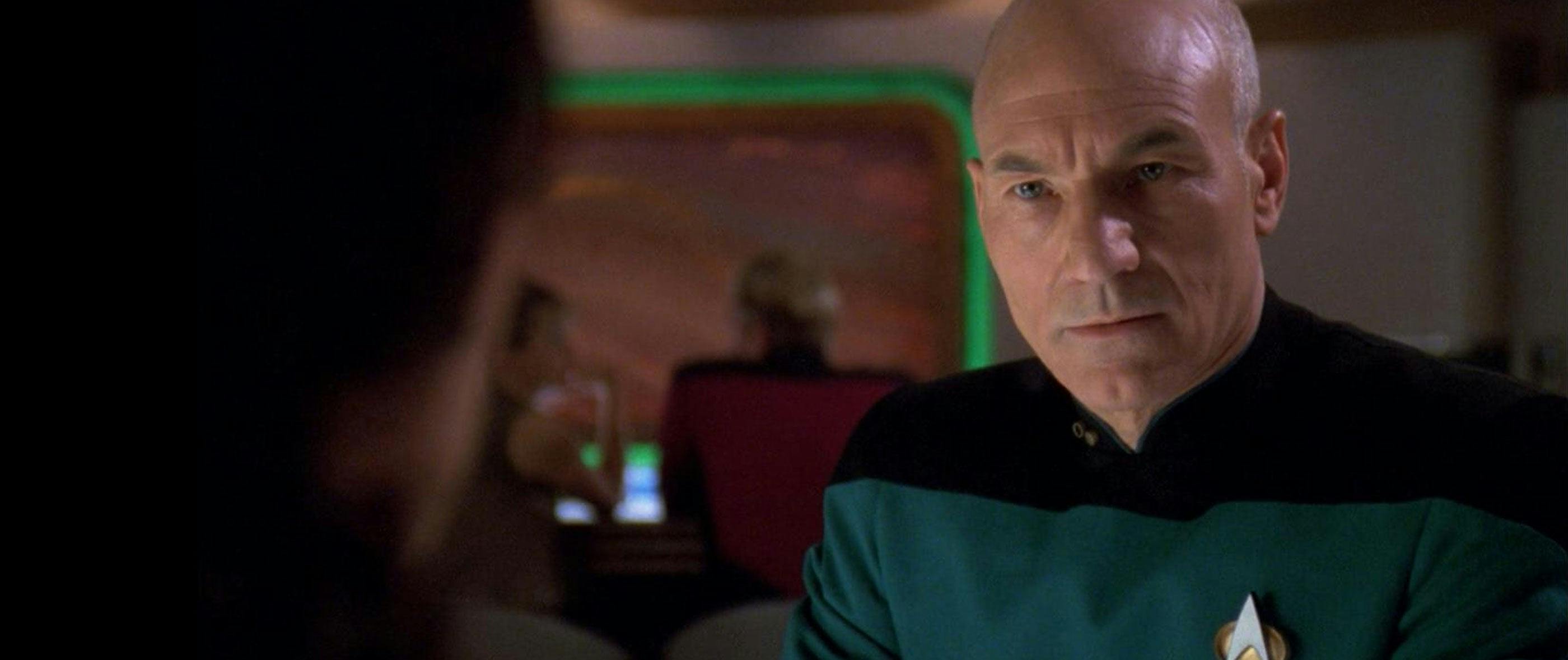
Star Trek is a show about ideas. It is often full of action, suspense, drama, and humor. But at its core, Star Trek communicates ideas about human life through the experiences, relationships, tragedies and explorations of the universe narrated/explored through its characters. In each of these encounters with alien species, space anomalies or with fellow crew members, something of the human condition is conveyed. I hope to explore some of these, along with the myriad fans of Star Trek, and come to know something more about the phenomenon we love and to know more about ourselves as well. In my professional life I teach philosophy and so I will carry out these musings in conversation with some of the key thinkers in philosophy and history.
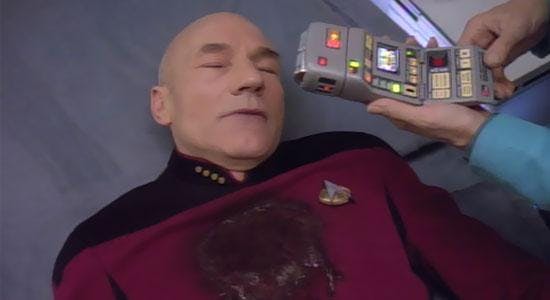
One of my favorite episodes of Star Trek: The Next Generation is “Tapestry.” This episode has everything I mentioned above. It has the erratic and often humorous behavior of Q, some ornery Nausicaans, romantic interests, great fights, wonderful character development and suspense. The opening scene sees the stalwart and stoic Captain Jean-Luc Picard die in sickbay resulting from a weapon’s blast. The artificial heart he received in his youth gave out and he could not be saved. The omnipotent Q visits Picard in what appears to be the afterlife and asks whether there is regret in the captain’s life. It’s a poignant inquisition, as the tormented voices of those who have died, either through the action or inaction of Picard throughout his life, echo in the background. Q offers Picard an opportunity to make peace with his “sordid” past. He can alter the past in order to avoid the violent encounter with the surly Nausicaans in his youth to keep his natural heart and thus save his future life.
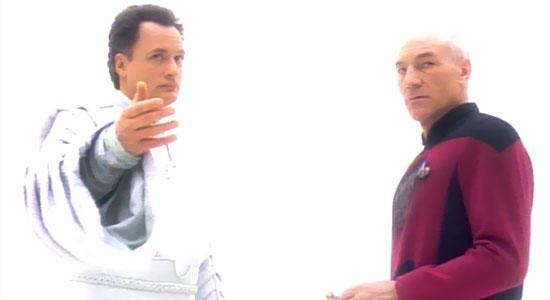
Picard is nothing if not an enlightened individual, and he laments that his youthful life was filled with “far too much ego” and “too little wisdom.” Rather than seeing an untimely end to his life, Picard is sent to the past and, in the course of events, a mature captain attempts to convince his youthful, ensign companions to not seek revenge on the cheating Nausicaans. He attempts to make them see that the risk is too great and the potential benefit not worth the potential loss. During his attempts to correct his youth, Picard manages to alienate his closest friends. He refuses to come to the aid of his mate, Cortin Zweller, and in doing so betrays the friendship which is based on years of comaraderie, shared experience and mutual support. They used to have one another’s backs, not one another’s consensus. In different ways, he explores the “what if” person in his life, Marta. However, in being willing to romantically explore what did not originally occur, the mature Picard does not anticipate the response of youth to the discomforting change of a friendship. This, too, is lost and cannot be recovered. Ultimately, Picard avoids the fateful combat with the Nausicaans, but the cost in terms of friendships is high. The cost is also high in terms of his own life. The outcome of being overly cautious and losing youthful zeal is not only that Picard’s career suffers. Even more so, he loses himself. The dreary lieutenant from astrophysics is a shell of the person Picard is and a caricature of the life he knows as his own.
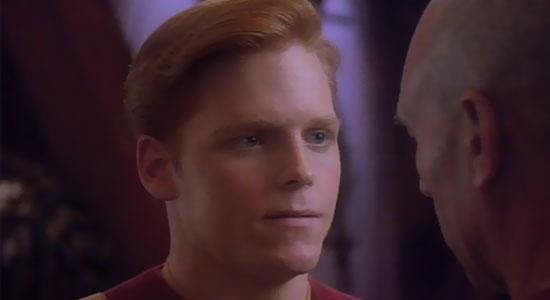
Picard is given an opportunity that many would relish. As we mature, it is common to look back at points in our life and reflect on the choices we made and the things we’ve done. Depending on the nature of the events in mind we might swell with pride, wince with regret or even feel the pangs of shame. It is easy to examine our past from the standpoint of maturity and have some regrets. If we are caught in similar circumstances today, we act differently than we did in our youth. In Plato’s Apology, Socrates stands trial for denying the gods, corrupting the youth and for being politically disruptive (activities well known to philosophers!). Socrates discusses the option of avoiding execution by choosing a life of silence where his questions and his explorations in virtue will no longer prove to be a menace to the stability of Athenian society. He is given the opportunity to go on living, and all he has to do is avoid his life’s passion and abandon his inquiries. It is here that Socrates offers his famous dictum, “the unexamined life is not worth living.” Socrates cannot take up the offer of the Athenian authorities. He cannot remain silent. He must continue his searches because it is these inquiries that make his life worthwhile.
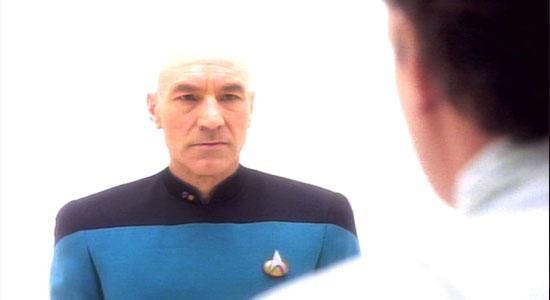
Ancient philosophers discussed this in the Socratic idea of the unity of the virtues. A person cannot simply be just or merciful, generous or patient without having the other virtues accompanying them. One must be resolute and have self-discipline in order to gain wisdom. One must be patient to be steadfast and one must be humble to learn knowledge. In other words, a complete life is needed in order to have a life that is worthwhile. Picard could not become the wise captain without reflecting critically on his impetuous youth. He could not courageously take command of the Stargazer when it was needed without taking the risks of getting into fights over games of dom-jot. He could not know that life is a fleeting thing that merits our making the most of every second without nearly losing that life before it reached fulfillment. These moments shaped who he became and gave him the life worth living. Without those moments of regret and the brash arrogance of his youth his life becomes tedious and wearisome. The normally stoic Picard cries out, “I cannot live out my days as that person. That man is bereft of passion and imagination. I am not that man!” He would rather die on Dr. Crusher’s table than live as the person he became after he changed his youth.
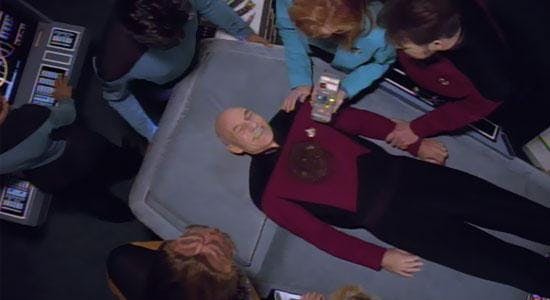
In this moment, Picard learns something of immense importance. He learns that living well is less about having a life without blemishes as it is about reflecting upon the complexities and conflicts of one’s life and learning from it. What is important, for both Picard and Socrates, is that we examine our lives with its imperfections rather than constructing perfect lives. It’s the willingness to confront ourselves and grow that matters. Picard doesn’t try to justify his youth, nor do his opinions change about it. In the end, he still thinks he was brash and arrogant as an ensign. But he comes to recognize that our well-being and maturation hinge upon our openness to acknowledge our flaws and learn from them. For Picard, Socrates and us, the process of learning from our lives is superior to having spotless lives. In fact, it appears that the examined life is the only one worth living.
Timothy Harvie is Associate Professor of philosophy and ethics at St. Mary's University in Calgary, Canada. His interests lie primarily in philosophical theology, political philosophy, environmental and animal philosophies, and ideas of the role of hope in society. He is a lifelong Star Trek fan. Check out his website at www.stmu.ca/dr-timothy-harvie.

